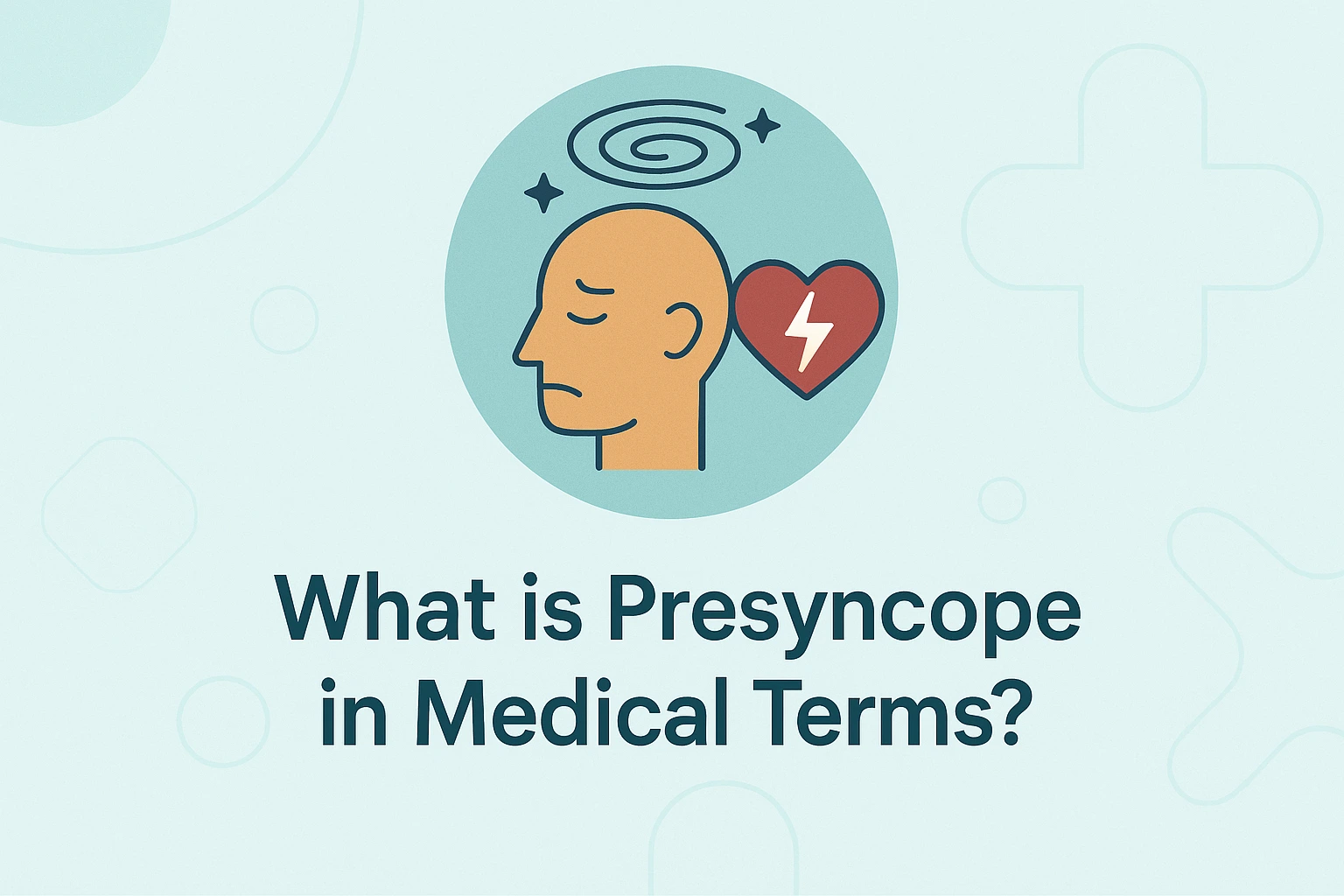Presyncope is the sensation of feeling light-headed or as though you’re about to faint, but without actually losing consciousness. Sometimes referred to as near syncope, presyncope occurs when blood flow to the brain temporarily decreases, causing the feeling of faintness. Unlike syncope, which is the medical term for fainting, presyncope doesn’t involve a complete loss of consciousness.
Presyncope can last anywhere from a few seconds to a few minutes. While it’s often not serious for many individuals, it can be an indicator of underlying health issues. For a small percentage of people, presyncope may be a warning sign of heart problems like arrhythmias, or low blood pressure, both of which can lead to more severe consequences, including fainting or injury from a fall.

Symptoms of Presyncope
Symptoms of presyncope include various sensations. These sensations can indicate the presence of this condition.
- Light-headedness
- Weakness
- Nausea
- Visual disturbances
- Palpitations
- Feeling faint
Causes of Presyncope
Common causes of presyncope involve reduced blood flow to the brain. Other factors include inner ear issues, fluid loss, or inflammation.
- Dehydration
- Prolonged standing
- Heat exposure
- Low blood pressure
- Medication side effects
- Vasovagal response
When to See a Doctor Presyncope?
Seek medical advice if you experience symptoms of presyncope. This includes fainting, chest pain, confusion, or persistent symptoms.
Related Terms
FAQs for Presyncope
What is the difference between dizziness and vertigo?
Dizziness is a general term for feeling unsteady, while vertigo specifically refers to a spinning sensation.
How does presyncope differ from dizziness?
Presyncope is a near-fainting sensation, whereas dizziness can encompass a broader range of feelings.
When should I go to the ER for presyncope?
If you experience fainting, chest pain, or confusion, seek emergency care immediately.
How can heat and dehydration affect presyncope?
In hot climates like the UAE, dehydration and heat exposure can increase the risk of presyncope.
What are some ways to reduce the risk of presyncope?
Staying hydrated, avoiding prolonged standing, and managing heat exposure can help mitigate risks.
